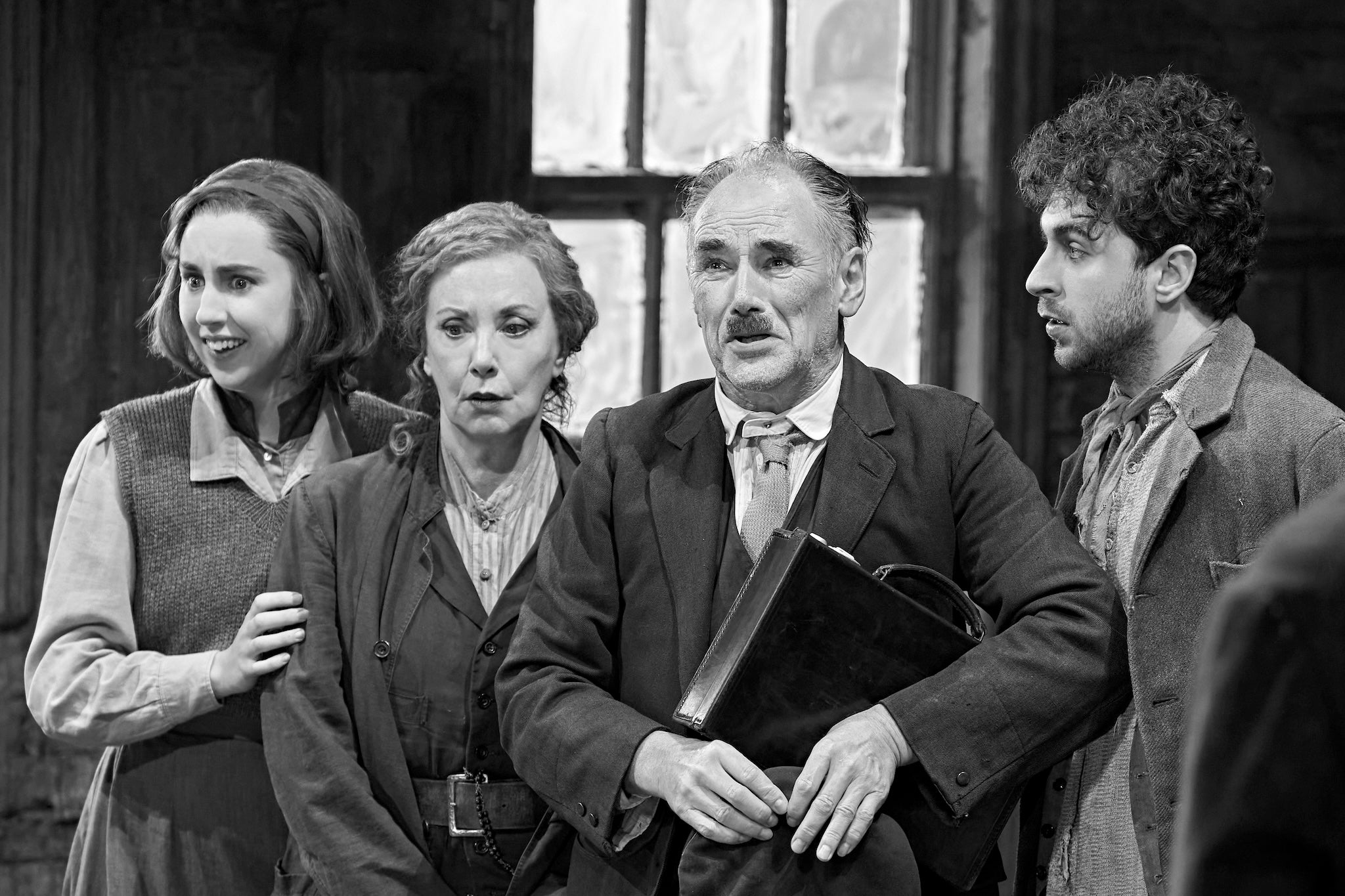Juno and The Paycock: Mark Rylance’s charisma knits together a crowded production that needs room to breathe
Despite the marketing behind it, Matthew Warchus’s play doesn’t do much to update either the gender roles or the aesthetic of this stubbornly traditional Irish masterpiece

Your support helps us to tell the story
From reproductive rights to climate change to Big Tech, The Independent is on the ground when the story is developing. Whether it's investigating the financials of Elon Musk's pro-Trump PAC or producing our latest documentary, 'The A Word', which shines a light on the American women fighting for reproductive rights, we know how important it is to parse out the facts from the messaging.
At such a critical moment in US history, we need reporters on the ground. Your donation allows us to keep sending journalists to speak to both sides of the story.
The Independent is trusted by Americans across the entire political spectrum. And unlike many other quality news outlets, we choose not to lock Americans out of our reporting and analysis with paywalls. We believe quality journalism should be available to everyone, paid for by those who can afford it.
Your support makes all the difference.Mark Rylance mesmerised audiences with his Olivier Award-winning turn as visionary layabout Rooster Byron in Jerusalem. Now, he’s playing a boozy ne’er-do-well of a more old-fashioned sort in Irish playwright Sean O’Casey’s 1924 classic, in a production that’s rich in hilarity but a little short on enchantment.
J Smith-Cameron (also known as tantalisingly firm lawyer Geri in Succession) brings plenty of staunch energy to the title’s Juno, her shoulders bearing the weight of a useless husband, a war-wounded son, and a striking daughter in an impoverished Dublin tenement. And Rylance finds all the silliness in the role of the patriarchal Paycock (aka Peacock) Jack Boyle, a former sailor whose life’s great labour is avoiding work – until an unexpected inheritance sets him preening.
There’s darkness aplenty in the background, with Johnny (Eimhin Fitzgerald Doherty) skulking at the corner of the stage, mourning the arm he lost in a fight for Irish independence that won’t let him rest. But the play’s best moments are its silliest, with the first act giving Rylance endless opportunities for mischief, beautifully abetted by Matthew Warchus’s direction. Jack and his even more disreputable friend Joxer (Paul Hilton) have endless comic bits of business, bringing serious skill to Punch and Judy-style moments of naughtiness: Rylance pinches hot sausages then hides them agonisingly in his lap; Hilton swallow-dives out the window when fearsome Juno appears.
This old school wife-dodging humour is somewhat at odds with a production whose marketing emphasises Juno’s wit and resilience: in reality, Warchus doesn’t do much to update either the gender roles or the aesthetic of this stubbornly traditional play.
Rob Howell’s design offers the kind of grey, dilapidated room that’s pretty much industry standard for revivals of classic Irish works – its copious furniture constraining the actors in the second act, before it’s dragged off in the kind of lengthy, teacup-clattering scene change you rarely get in the West End these days. When Warchus dials up the violence of the play’s surprisingly bleak third act, it feels like a conjuror has whipped away the tablecloth from under the crockery, in a clattering tonal shift that’s a shock after the gentle domestic comedy that’s gone before.
This is a play that’s full of betrayals. A polite drawing room betrayal, where foppish English solicitor Mr Bentham (Chris Walley) misleads both Jack and his daughter Mary (Aisling Kearns) with the hope of a brighter future. And its louder echo, the far greater betrayal of the British government, and the Catholic church, which together have left this family perpetually cheated of the happiness that could have been theirs.
A silver crucifix is suspended above the stage, suggestive of this painful context. But somehow, that deep sense of injustice and pain doesn’t get space to breathe here, in a tenement crowded with furniture and nimble bits of business. Still, Rylance’s charisma knits together a production that’s full of roustabout hilarity and poignancy mingled together, bright and bleak at once.
The Gielgud Theatre, until 23 November; www.junoandthepaycock.com
Join our commenting forum
Join thought-provoking conversations, follow other Independent readers and see their replies
Comments